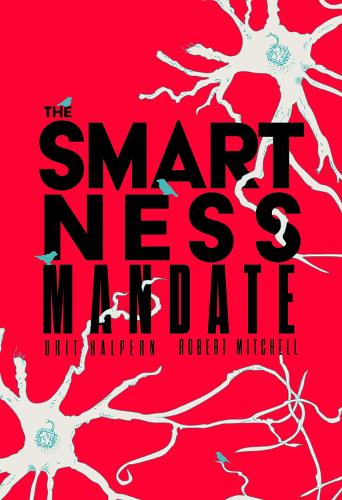
The Smartness Mandate
(Paperback)
Publishing Details
The Smartness Mandate
By (Author) Orit Halpern
By (author) Robert Mitchell
MIT Press Ltd
MIT Press
7th March 2023
United States
Classifications
General
Non Fiction
006.3
Physical Properties
Paperback
304
Width 152mm, Height 229mm
Description
Over the last half century, "smartness"-the drive for ubiquitous computing-has become a mandate- a new mode of managing and governing politics, economics, and the environment. Smart phones. Smart cars. Smart homes. Smart cities. The imperative to make our world ever smarter in the face of increasingly complex challenges raises several questions- What is this "smartness mandate" How has it emerged, and what does it say about our evolving way of understanding-and managing-reality How have we come to see the planet and its denizens first and foremost as data-collecting instruments In The Smartness Mandate, Orit Halpern and Robert Mitchell radically suggest that "smartness" is not primarily a technology, but rather an epistemology. Through this lens, they offer a critical exploration of the practices, technologies, and subjects that such an understanding relies upon-above all, artificial intelligence and machine learning. The authors approach these not simply as techniques for solving problems of calculations, but rather as modes of managing life (human and other) in terms of neo-Darwinian evolution, distributed intelligences, and "resilience," all of which have serious implications for society, politics, and the environment. The smartness mandate constitutes a new form of planetary governance, and Halpern and Mitchell aim to map the logic of this seemingly inexorable and now naturalized demand to compute, to illuminate the genealogy of how we arrived here and to point to alternative imaginaries of the possibilities and potentials of smart technologies and infrastructures.
Author Bio
Orit Halpern, Lighthouse Professor and Chair of Digital Cultures and Societal Change at Technische Universit t Dresden, is the author of Beautiful Data- A History of Vision and Reason since 1945. Robert Mitchell is Chair and Professor of English, as well as Director of the Center for Interdisciplinary Studies in Science and Cultural Theory, at Duke University. His books include, most recently, Infectious Liberty- Biopolitics between Romanticism and Liberalism.
